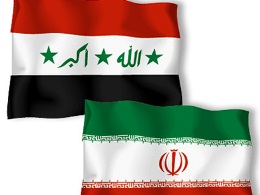 An article in the March 12 edition of�The Financial Times, one of Britain�s most reputable newspapers, described Turkey as the real winner of the war in Iraq, even though Iran appears to be the most influential foreign power in the country. The article based its assertion on the�Turkish companies� flourishing business in Iraq�and pointed out that the trade volume between the two countries had reached $10.8 billion in 2012.
An article in the March 12 edition of�The Financial Times, one of Britain�s most reputable newspapers, described Turkey as the real winner of the war in Iraq, even though Iran appears to be the most influential foreign power in the country. The article based its assertion on the�Turkish companies� flourishing business in Iraq�and pointed out that the trade volume between the two countries had reached $10.8 billion in 2012.Well, is business alone enough to make one a winner?
The answer to that question seems to vary depending on a country�s capacity of national and international influence. And when it comes to Iraq, one could hardly conclude that economic activity alone is enough. In this context,�the clout Iran wields in Iraq�remains on an indisputable scale. The ties and cooperation between Iran and Iraq appear to be on the rise, especially since the outbreak of unrest in Syria. The sheer number of visits and the agreements signed between the two countries in March and April is in itself a telling indication of how they are moving closer to each other.
In March, Iranian Foreign Minister Ali Akbar Salehi and his deputy Hossein Amir Abdollahian paid separate visits to Iraq. Salehi met with religious scholars in Najaf, while Abdollahian held talks with Iraqi officials on the situation in Syria and Bahrain.
On March 10, Iranian Oil Minister Rostam Qassemi traveled to Baghdad for talks with Iraqi Prime Minister Nouri al-Maliki. The two discussed plans for joint projects, including the natural gas that Iran will supply to Iraq, and agreed that Iran would export gas to Iraq by July 20, 2013.
In early April, Iranian Intelligence Minister Heydar Moslehi also went to Baghdad and met with Maliki as well as with the leader of the Islamic Supreme Council of Iraq, Ammar al-Hakim,�Parliament Speaker Osama al-Nujaifi�and National Security Advisor Faleh al-Fayyad. An emphasis was put during the talks on the need to improve bilateral relations particularly in the field of security. Moslehi stressed that Iran was ready to share its experience with Iraq.
Similarly, Iraqi officials paid a series of visits to Iran and signed agreements in various fields.
In February, the chief of Iraq�s free trade zones, Sabah Saleh al-Qaisi, travelled to Iran and held talks with the director of Iran�s Arvand Free Trade Zone (FTZ), Mohebat Raeesi. The two sides signed an agreement that covered the upgrading of railway and sea transport between their countries as well as issues related to the petrochemical industry and oil refineries.
On March 6, Iraq�s acting Interior Minister Adnan al-Assadi held discussions with his Iranian counterpart, Mostafa Mohammad Najjar, during a visit to Iran. The two sides agreed to inaugurate new border crossings on their frontier and put into practice a fresh memorandum of understanding under which Iran would train and help equip Iraqi police.
On March 5, Iran, Iraq and Syria inked a telecommunication cooperation deal at the end of talks in Tehran. Under the deal, the three countries will cooperate on data exchange and signalization. It is already known that Iran provides also Internet services support to Iraq.
Yet another agreement was signed on March 12 to enhance cooperation between the Iranian and Iraqi naval forces, which envisions joint military exercises in particular.
It is obvious that Iranian-Iraqi ties are growing vigorously. The trade volume between the two countries stands at $10.7 billion at present and is expected to reach $12 billion at the end of 2013.
Iran is seeking to build up ties not only with the Iraqi central government, but also with the Kurdistan Regional Government (KRG). Still, Iran�s relations with the Iraqi central government remain strong in every realm.
In November 2012, Iran began work on the 1,500-kilometer [932-mile] natural gas pipeline to connect Iran, Iraq and Syria under an agreement signed on July 25, 2011. It has been announced that the 225-kilometer [140-mile] Iranian section that starts from Asaluyeh is about to be completed, and that the first delivery of gas to Iraq will be made in the summer of 2013. The completion of the pipeline appears difficult under the current circumstances, but still the conduit is an important step for Iran to further improve ties with Iraq and diversify its markets and shipment routes so as to overcome the embargo.
If the pressure on Iran and the Syrian problem continue as they are, the Iranian-Iraqi rapprochement is likely to grow since Iraq serves as an important player and a bridge in Iran�s Syria policy. Iraq however could serve also as a transit point for Iran to open up to foreign markets in terms of trade.
In the meantime, the persisting Iranian influence in Iraq is weakening the US influence there. As a matter of fact, ever since 2003, the United States has been able to accomplish its objectives in Iraq only when Iran acquiesced. This was especially obvious during government formation processes.
The essential question here is whether Iranian-Iraqi cooperation will evolve into an alliance or even a polarized powerhouse? The course of Iranian-Iraqi ties is a major parameter for the future of the region as well. Should the Iranian-Iraqi rapprochement grow into an alliance or a polarized powerhouse, Turkey, too, is likely to face a dilemma.
By Al-Monitor
The Iran Project is not responsible for the content of quoted articles.










